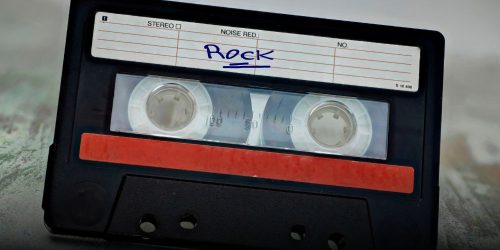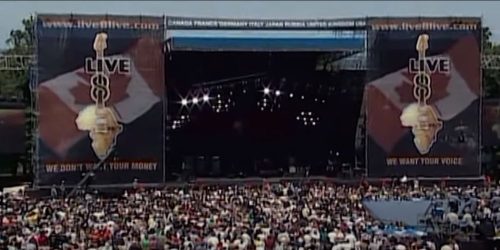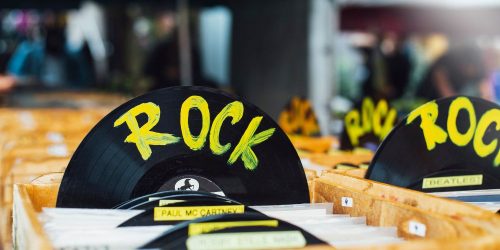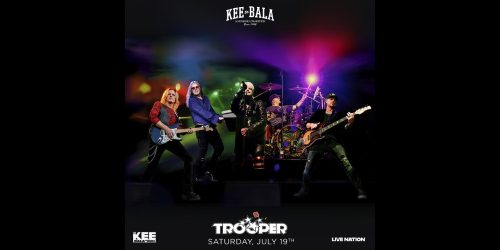August 2: Bob Dylan Officially Changed His Name
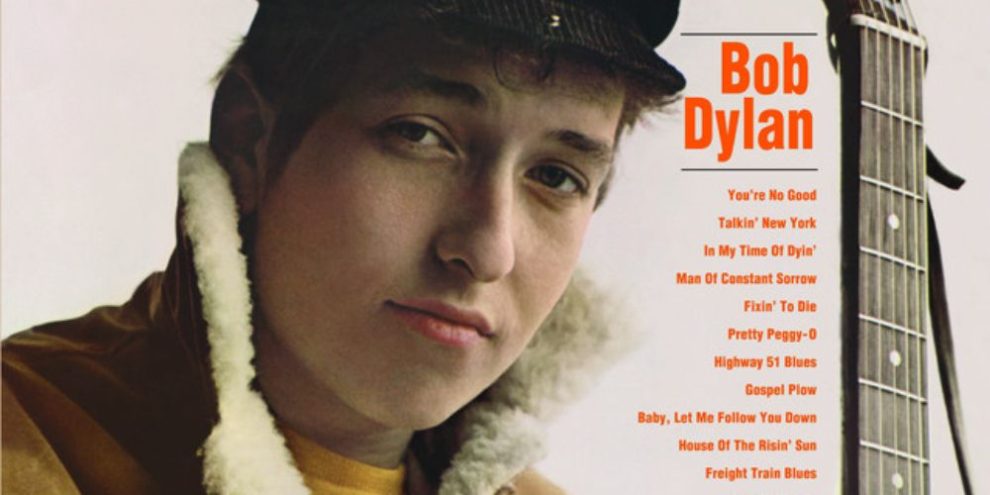
On this day in 1962, Robert Allen Zimmerman legally changed his name to Bob Dylan.
Before he became a big name in rock history, Dylan played under many aliases, including Robert Allen and Elston Gunn.
In his memoir Chronicles, Dylan shares, “The Elston Gunn name thing was only temporary … What I was going to do as soon as I left home was just called myself Robert Allen. As far as I was concerned, that was who I was – that’s what my parents named me. It sounded like the name of a Scottish king, and I liked it. There was little of my identity that wasn’t in it.”
But how exactly did Robert Allen change to Bob Dylan?
Where The Name Bob Dylan Came From
Many believed that Dylan was a tribute to the author Dylan Thomas, but Bob Dylan has denied this several times.
Dylan once told The New York Times that he “did not take my name from Dylan Thomas.” He continued, adding, “Dylan Thomas' poetry is for people that aren't really satisfied in their bed — for people who dig masculine romance."
He even told Jules Seigel, who wrote for the Saturday Evening Post and other publications, that “I’ve done more for Dylan Thomas than he’s ever done for me.”
Still, Dylan has said that Thomas may have been a subconscious influence on the name.
In his memoir, Dylan recalls learning about jazz artist David Allyn.
Dylan explains, “I had suspected that the musician changed the spelling of Allen to Allyn. I could see why. It looked more exotic, more inscrutable. I was going to do this too. Instead of Robert Allen, it would be Robert Allyn. Then, sometime later, unexpectedly, I’d seen some poems by Dylan Thomas.”
He added, “Dylan and Allyn sounded similar: Robert Dylan, Robert Allyn. I couldn’t decide – the letter D came on stronger. But Robert Dylan didn’t look or sound as good as Robert Allyn. People had always called me either Robert or Bobby, but Bobby Dylan sounded too skittish to me, and besides, there was already a Bobby Darin, a Bobby Vee, a Bobby Dydell, a Bobby Neely, and a lot of other Bobbys,” Dylan continued.
Then during a performance, when asked what his name was, he responded with Bob Dylan.
“I instinctively and automatically, without thinking, simply said: ‘Bob Dylan.’ Now, I had to get used to people calling me Bob.”
Soon after, Dylan released his debut album, Bob Dylan, in March 1962, and five months after that, he legally changed his name.
Other Notable Rock Events From August 2
1957 - The official UK Elvis Presley Fan Club started.
1958 - Johnny Cash left Sun Records to sign with Columbia Records.
1960 - “Shakin’ All Over” went to #1 in the UK. Originally performed by Johnny Kidd and The Pirates, many artists have covered the song, including The Who, Led Zeppelin, Iggy Pop, and The Guess Who.
1964 - A “new and unknown London group” called The Kinks, opened for The Beatles in Bournemouth, England.
1968 - The Doors went #1 with “Hello I Love You.” The song stayed at the top of the charts for 2 weeks.
1969 - Bob Dylan makes his last hometown appearance after a drunk tries to pick a fight with him at his high-school reunion.
1970 - Elvis Presley went to #1 on the UK charts for “The Wonder Of You.”
1972 - Brian Cole, bass player with The Association, overdosed on heroin and passed away.
1975 - “One Of These Nights” by the Eagles shot to #1 in the US.
1976 - Pink Floyd’s road manager, Peter “Puddy” Watts, died of a heroin overdose. He is the voice behind the laughter on The Dark Side Of The Moon.
1977 - Sid Vicious from the Sex Pistols was fined for carrying a knife at the 100 Club Punk Festival in 1976.
1978 - Boston released Don’t Look Back, their second studio album.
1980 - The Clash released “Bank Robber.” It was previously only available by import.
1980 - Deep Purple released Deepest Purple.
1983 - James Jamerson died at 47 years old from cirrhosis of the liver, heart failure, and pneumonia. Jamerson was an uncredited bassist on songs for Stevie Wonder, The Temptations, Marvin Gaye, The Supremes, and more.
1986 - Peter Cetera, Chicago’s former bass player, charted with his first solo release “Glory Of Love.”
2000 - Rushworth and Dreaper, a store in Liverpool best known for selling The Beatles their instruments, closed after 150 years of business.
2001 - A Mojo magazine poll named The Beatles the “Favourite Recording Artist Of All Time.”
2005 - Eric Clapton bought shares in Cordings, a historic gentleman’s outfitters, to stop it from closing. The store was known for creating the Covert coat and Tattersall shirt.
2005 - The Killer’s Brandon Flowers married Tana Munblowsky.
2007 - Keith Richards signed a deal worth more than $7 million (reportedly) for his autobiography.
2013 - Nielsen reported the lowest weekly album sales total since the tracking system started in 1991.
2019 - Ed Sheeran's tour became the biggest, most attended, and highest-grossing tour of all time, breaking U2's previous record.
2020 - Steve Holland, guitarist and founding member of Molly Hatchet, died at the age of 66.
Rock Birthdays
1937 - Garth Hudson of The Band (multi-instrumentalist); Also backed Bob Dylan
1944 - Jim Capaldi of Traffic (Vocals & Drums); Also performed with Jimi Hendrix, Eric Clapton, George Harrison, and more
1948 - Andy Fairweather-Low of Bob Dylan, Roger Waters, Eric Clapton, and more (Guitar)
1951 - Joe Lynn Turner of Deep Purple (Vocals)
1952 - Les Dudeck of Steve Miller Band, Stevie Nicks, Allman Brothers Band, and more (Guitar)
1957 - Butch Vig of Garbage (Drums); Also produced records for Sonic Youth, Smashing Pumpkins, and Nirvana
On This Day In History - August 2
August 2 in rock history has been marked by significant milestones. From the iconic release of The Doors' “Hello I Love You” to when Bob Dylan officially changed his name, rock enthusiasts continue to cherish, commemorate, and celebrate these moments, demonstrating the enduring impact of August 2 on the genre's history.
Snag Our Newsletter
Hit that button like you’re pressing play on your favourite track. get exclusive content, stories, and news.

